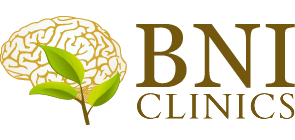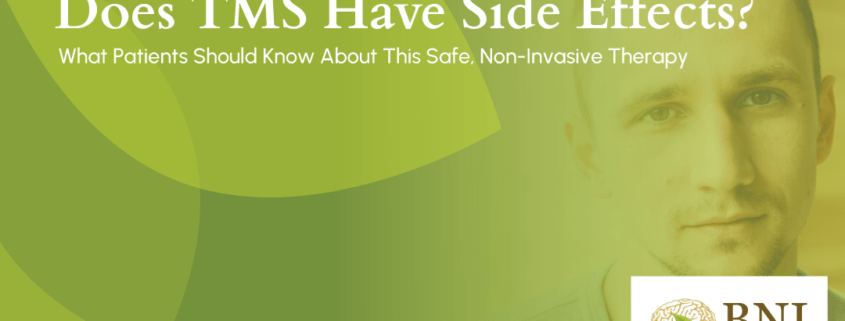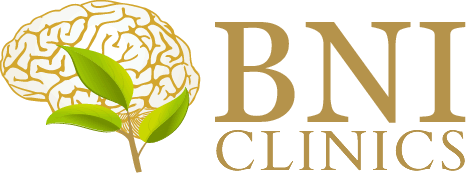Does TMS Have Side Effects? What Patients Should Know About This Safe, Non-Invasive Therapy
An estimated 30% of individuals with major depressive disorder are living with treatment-resistant depression. Are you among them? Perhaps you’re seeking relief from obsessive-compulsive disorder (OCD) instead.
Transcranial magnetic stimulation (TMS) is a promising treatment protocol for both of these conditions and more.
When people hear about TMS, they typically have many questions. A common one is, “Does TMS have side effects?” The answer is yes, but it has significantly fewer adverse effects and reactions than regular antidepressant medications.
At BNI Clinics, TMS is one of our many evidence-based therapies. We have extensive experience with it. We can answer that question according to research and what we’ve seen firsthand.
Understanding Transcranial Magnetic Stimulation (TMS): What You Should Know
TMS is a non-invasive procedure that utilizes electromagnetic energy to stimulate parts of the brain. Because brain cells communicate through electricity, TMS can influence and revitalize underactive cerebral regions. It utilizes pulses through a magnetic coil pressed against the individual’s head.
TMS is FDA-approved for treatment-resistant depression, obsessive-compulsive disorder (OCD), migraines, and smoking cessation. Some studies indicate promising results for anxiety, post-traumatic stress disorder, stroke rehabilitation, Parkinson’s disease, Alzheimer’s disease, chronic pain, and multiple sclerosis. More research is necessary, but some practitioners already offer it as a treatment option for these concerns.
How long the TMS sessions last depends on the treated condition and type of TMS. Magnet strength, pulse strength, pulse patterns, and more can vary. Standard TMS protocol for treatment-resistant depression involves five 30-60 minute sessions per week. It typically lasts for 6 weeks. Individuals may feel relief from as early as the first week, but most begin noticing effects after the third week.
Driving and returning to regular activities after a TMS session is perfectly safe.
Answering a Common Question: Does TMS Have Side Effects?
TMS has minimal side effects. Its most common side effects are mild and typically subside after a few sessions. Weight changes, dry mouth, and sexual dysfunction, which are common side effects of medication, don’t occur with TMS. This makes it an ideal option for individuals who responded negatively to medication or didn’t respond at all.
Mild and Short-Lasting TMS Side Effects
The bulk of TMS’s potential side effects are insignificant and go away on their own. Side effects could include:
- Pain or discomfort at the site of the TMS
- Headaches
- Lightheadedness
- Neck pain
- Scalp pain
- Tingling and twitching
- Fatigue
- Cognitive changes during treatment sessions
These side effects generally respond well to over-the-counter medications and are easy to manage until they dissipate.
While rare, some individuals may notice changes in their sleeping patterns, including temporary insomnia or hypersomnia. Some also rarely experience sound sensitivity or changes to their sense of taste. These also are usually temporary.
Addressing More Serious TMS Side Effects and Safety Concerns
Seizures are a common concern among individuals skeptical of TMS. In reality, the likelihood of seizures due to TMS is about .008%. The possibility of seizures increases in individuals with epilepsy but is still lower than 3%. Of this small number of TMS-induced seizures, the majority are harmless. This makes TMS an incredibly safe procedure overall.
TMS does pose a large risk to individuals with metal in their heads. This includes stints, bullet pieces, metal plates, permanent piercings, tattoos with metallic ink, and more. The strength of the magnets used during TMS can cause these metals to move, which may be dangerous. TMS is not recommended in these cases. People with dental fillings and braces may safely undergo TMS.
The positive influence TMS can have on energy and mood is typically well worth the minor risk of side effects.
Finding TMS in Los Angeles at BNI Clinics
If you’re ready to try transcranial magnetic stimulation, the first step is to speak to your practitioner. They will know your personal health history, and you can discuss if you are a viable candidate for TMS. If you and your doctor conclude it would benefit you, they will likely refer you to a TMS specialist. Then, you’ll be able to try this safe, non-invasive tms therapy for yourself, and see the results it brings.
BNI Clinics is a mental health provider serving the Los Angeles area. We offer everything from psychological testing and individual therapy sessions to TMS and ketamine therapy. Our practice is owned and operated by expert psychiatrists who walk alongside you on every step of your mental health journey, from diagnosis to medication management and beyond. We work with all age groups, allowing our young clients to stay with us well until adulthood without any trouble or stress. We would love to work with you, too. Call us at (310) 691-5005 today for more information.
BNI Clinics: Science-based, evidence-backed, compassion-led.






